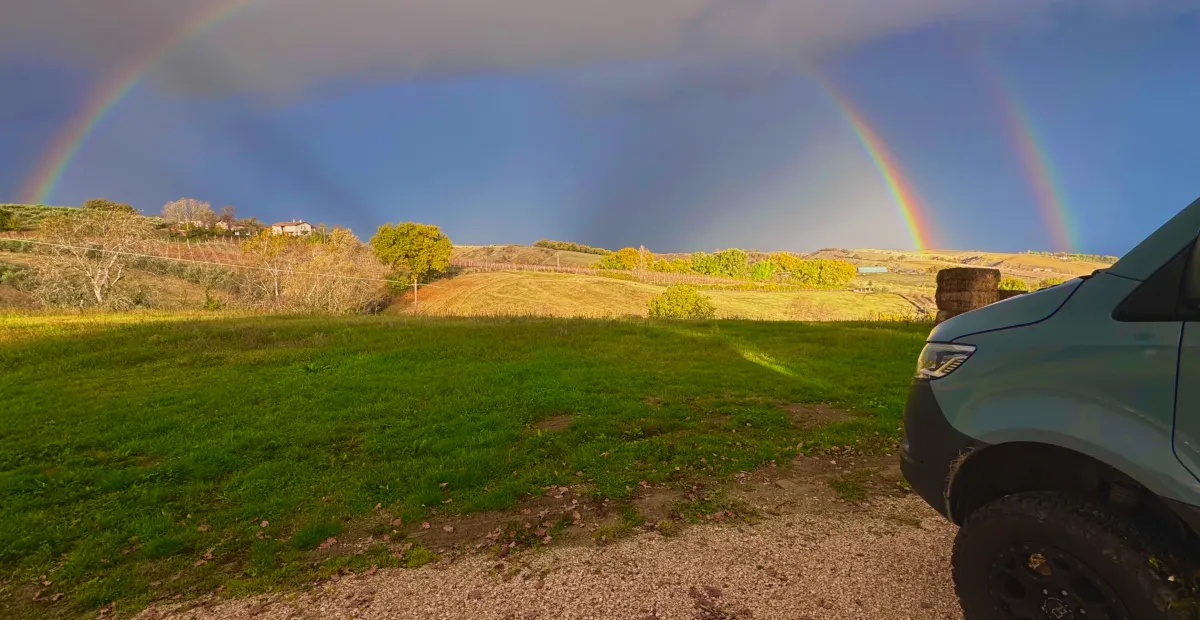I was starting to think it would never happen, but I’ve finally found a useful role for AI: planning our vanlife travels. I’m not a student, and I don’t code, but I’m currently on day 48 of a van tour through Europe with my wife and dog. We travel without any fixed itinerary, chasing the wind and sun while managing our 9-to-5 jobs. The ability of AI to assist with travel planning has turned it into an invaluable tool for us. We’ve increasingly relied on the free versions of Gemini and ChatGPT to help decide where to go next.
It all kicked off with a simple question. After a tiring 25km hike and only a few hours of daylight left, I opted out of the typical back-and-forth with Google search results. Instead, I opened the Gemini app on my iPhone and asked, “Is there a charming village near Plitvice Lakes National Park?”
Gemini’s upbeat response was: “Absolutely! There is a particularly charming village very close to Plitvice Lakes National Park called Rastoke. Often described as a ‘fairy-tale’ or ‘watermill village,’ it’s also known as ‘Little Plitvice’ because it shares a similar natural beauty, albeit on a smaller scale.” So, we took a chance and drove 20 minutes to Rastoke, Croatia, and what we found was truly enchanting.
Using Google with the same query could eventually lead me to Rastoke, but it would have been a longer process. I’d have to sift through the top results, including Facebook, Tripadvisor, and a lesser-known site called islands.com. Then I’d need to navigate cookie banners, sign-up forms, and dense text to find that village recommendation. In contrast, Gemini’s answer was quick, straightforward, and spoiler-free—exactly what I was looking for.
Rastoke far exceeded our expectations, prompting us to try AI again a few days later after visiting Ravenna, Italy—a place recommended by other travelers. This time, we used ChatGPT and added that our 6-meter RV is too large for the medieval streets of walled villages: “Find a charming village near Ravenna with easy RV parking.”
ChatGPT replied: “Brisighella • This is a beautiful medieval hill village, often listed among Italy’s most beautiful villages. There’s an area camper in Brisighella on Via Giuseppe Billi, just ten minutes on foot from the historic center, with services (carico/scarico).” Here’s what we found: Brisighella, Italy, might just be the most stunning village I’ve seen in Europe, and the parking was as easy as advertised. Despite its beauty, I had never heard of it before. Thanks, AI!
Searching Google for the same prompt that led to Brisighella yielded disappointing results. The top three links included a Tripadvisor article titled “THE 10 BEST Ravenna Campgrounds 2025 (with Prices),” an Expedia link about RV campgrounds starting at $90, and something from agricamper.com about motorhome stops in Emilia Romagna.
AI has clearly proven effective at quickly delivering useful information. But there’s a catch: AI’s capabilities only exist because humans have shared their experiences about “charming,” “cute,” “quaint,” or “fairy tale villages” online. If travelers stop contributing to travel sites and blogs, those platforms will fade away—the economic model that supports the internet relies on search traffic and clicks. If people cease to post travel content, what will AI have left to pull from to stay relevant?
My involvement in “Google Zero” leaves me torn. As a founding editor at Verge, I recognize that in some situations, AI can offer a more efficient and enjoyable experience than traditional websites. However, I also see it can worsen the issues that are pushing me and others away from search engines. With decreased clicks, websites will likely resort to more ads and annoying pop-ups asking for my email, ultimately degrading the online experience, which could drive even more users back to AI.
Another challenge is trust. The AI suggestions we’ve received so far have been pretty reliable, but there are plenty of stories about travelers who found themselves stranded after trusting AI without verifying the info. That’s why I still double-check those AI-generated ideas with Google Maps and Park4Nite.
AI-powered weather models are improving, so we’ve begun incorporating weather factors into our searches to help find places for kitesurfing when wind conditions are right. Wind forecasts can be notoriously unreliable beyond a few days, so we consider AI’s weather insights as potential guidelines while still relying on our go-to wind apps.
For our query seeking kiteboarding spots with sunny weather and winds above 15 knots, Gemini suggested Noli, complete with a summary of conditions and a wind forecast, which really helped narrow down our options in the area.
Gemini’s ability to layer weather data onto travel suggestions is incredibly useful for our kitesurfing pursuits. This type of response far surpasses what Google search can offer—even its AI summaries lack integrated weather information. Google could only confirm that yes, people do kitesurf in Noli. Both Gemini and ChatGPT have also helped us find routes and destinations that avoid rain and snow, which we continue to verify with trusted sources.
Now, Gemini and ChatGPT are the first tools we turn to daily for travel planning. Neither is better than the other, but having a second opinion is nice. In comparison to Google search results or browsing travel sites, they’re light years ahead. With such a knowledgeable assistant, we’ve maximized our enjoyment, spending less time planning and more time experiencing.
I was skeptical about AI enhancing my daily life before using it as a travel buddy. But now, I’m sold. There’s no better tool to quickly and easily nudge serendipity in the right direction. The only lingering question is how long this can last if there’s no one left to feed the machine.




